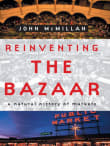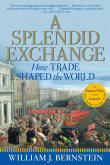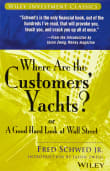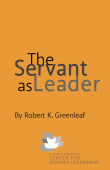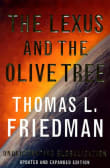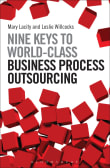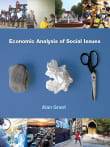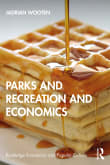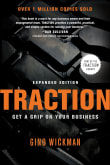Freakonomics
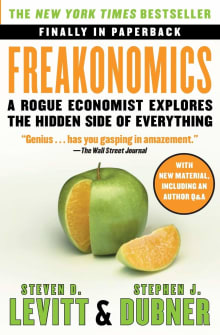
Book description
The legendary bestseller that made millions look at the world in a radically different way returns in a new edition, now including an exclusive discussion between the authors and bestselling professor of psychology Angela Duckworth.
Which is more dangerous, a gun or a swimming pool? Which should be feared more:…
Why read it?
6 authors picked Freakonomics as one of their favorite books. Why do they recommend it?

Steven Levitt, Professor of Economics at the University of Chicago, has written a thoughtful book at the layperson level to help one understand how mathematical and economic tools provide insights into sensitive social issues from racism to abortion.
He delves into predicting the long-term consequences of short-term decisions. This book is not intended for the college classroom, and it is controversial, but I found it to be a fascinating read.
From Martin's list on statistical insights into social issues.

This book is a fascinating exploration of the hidden side of economics, revealing the surprising and sometimes counterintuitive ways in which incentives and data shape our world.
Reading it challenged my assumptions about how society works and provided me with a new lens through which to view the world. Levitt's writing is accessible and engaging, making complex ideas easy to understand and apply to everyday life.
I highly recommend this book to anyone looking to expand their knowledge of economics and gain a deeper understanding of how incentives drive decision-making.
From Mark's list on investing in yourself.

A New York Times bestseller making several journal articles in microeconomic issues, especially labor economics, easily accessible to the general public, including education choices, racial and gender discrimination, family decisions, baby-naming, and Sumo wrestling.
Several humorous notes make its reading very entertaining for people of all backgrounds.
The authors do an excellent job at helping readers understand statistical concepts at a very intuitive level, which they can use when thinking about other real-world problems.
From Ana's list on getting into microeconomics.
If you love Freakonomics...

How many books on economics top the best sellers lists? Not many, but this one did. And for good reason.
Levitt and Dubner take an irreverent approach to explaining the economics of the world around us through great storytelling and an appeal to observations that we all make, but haven’t taken the time to really understand what is happening.
The range of story topics is wide, from cheating teachers, to the dynamics of street gangs, to television game show strategy, there is a lot here to digest. Through it all the authors reveal the true power of looking at the…
From Paul's list on how economics shapes our world and your life.

Levitt and Dubner’s entertaining bestseller explores hidden and perverse incentives that color our personal and business lives. They share real examples of how perverse incentives can affect (and taint) our decisions. My research at the University of Tennessee has identified 12 perverse incentives of outsourcing (Ailments of Outsourcing) that can plague and derail an outsourcing relationship. I like this book because it helps make the concept of perverse incentives very real and puts empirical evidence around the craziness that can happen if you don’t overlook inherent perverse incentivizes. Simply put, this book will not only make you laugh, it will…
From Kate's list on how to get outsourcing right.

Levitt is a pioneer of, and among the most successful users of, techniques of data analysis to identify causes and effects in economics. This book, based on work that won him the Clark Medal, the economics profession’s premier prize for young researchers, gives us surprising, quirky, and delightful insights into the workings of many economic, political, and social phenomena.
From Avinash's list on economics and game theory.
If you love Freakonomics...
Want books like Freakonomics?
Our community of 12,000+ authors has personally recommended 100 books like Freakonomics.

